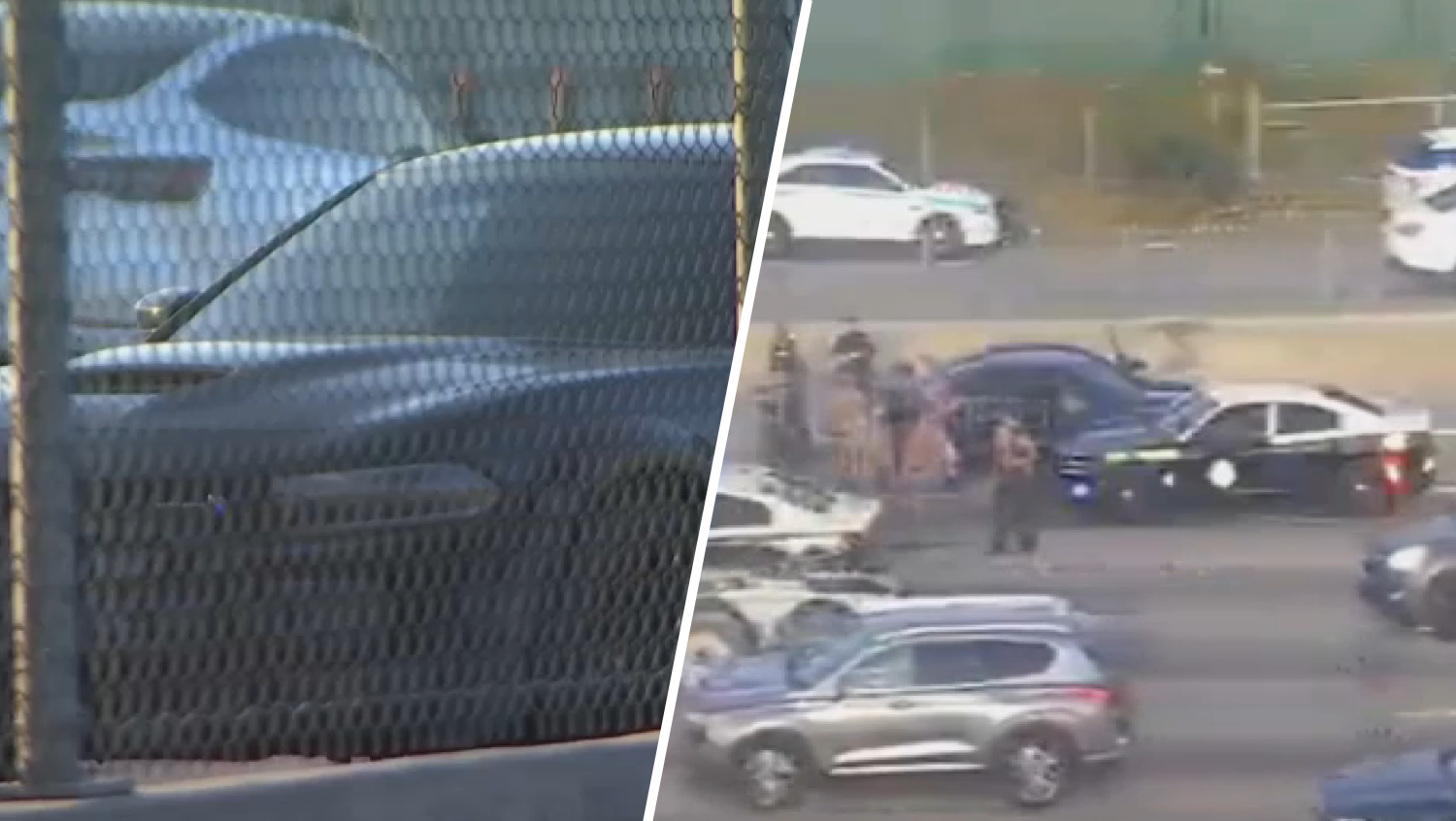Miami has finally received its notice of allegations from the NCAA, a long-awaited document accuses the Hurricanes of a "lack of institutional control" within its athletic department.
The allegations arrived on Tuesday. The institutional-control charge is typically one of the most severe the NCAA can bring after an investigation of rules violations. The governing body for college athletics declined comment Tuesday, one day after revealing that it was erasing some elements of its case against Miami because the information was obtained in impermissible ways.
"We deeply regret any violations, but we have suffered enough," Miami President Donna Shalala said in a statement Tuesday night.
Next up: The sanctions phase, where Miami's penalties will be decided. The Hurricanes have already self-imposed several sanctions, including sitting out two bowl games and a conference football championship game. Miami President Donna Shalala said Monday she believes those punishments should be enough.
Miami wants to get through the sanctions portion of the process as quickly as possible. But typically, it takes about three months for a hearing, and then can take several weeks — if not months — more for the penalties to be handed down. The sides coming to a settlement beforehand is another possibility.
Miami and the NCAA have gone back and forth on the wording of the notice of allegations for several weeks, and the long-awaited letter was nearly delivered last month. That's when the NCAA acknowledged that some mistakes were made by its own enforcement department. And that resulted in some allegations coming out of the letter.
It also led to yet another delay in the process, which many at Miami believe has dragged on for way too long.
Local
"This cannot end quickly enough," Miami coach football Al Golden said earlier this month.
The NCAA said it made revisions to the allegation document, which is still expected to be particularly damning for the football and men's basketball programs.
This saga started in September 2010, when the university told the NCAA that convicted Ponzi scheme architect and former Miami booster Nevin Shapiro made allegations to the school against former players.
Within about six months, an NCAA investigation was quietly underway, and the story became widely known in August 2011 after Shapiro provided Yahoo Sports with details of what he claimed to have given dozens of athletes, recruits and coaches over an eight-year period.
Among the gifts Shapiro alleged to provide: Memorabilia, cash amounts both large and small, dinners, strip-club trips, prostitutes, and even an abortion.
"It was a sloppy process overall and it took a couple of years to come up with nothing," said UM senior Tim Hirschfeld, who said the investigation has united students. "In the end, there were no facts."
Several Miami football and men's basketball players have either served suspensions, paid restitution or both in the past two years after their involvement with Shapiro was discovered. Apparently upset with how people he thought were friends turned their back on him following his conviction for the Ponzi operation, Shapiro vowed that he would take down the program, and even his attorney — a Miami alum — was willing to help the NCAA's cause.
Documents released Monday by the NCAA showed that Shapiro's attorney, Maria Elena Perez, offered to assist investigators working the Miami case by using subpoena power to depose witnesses under the guise of a bankruptcy case. NCAA enforcement officials accepted her offer, even feeding her questions to ask for at least one of the depositions, and records show they paid at least $19,000 for her work — though she billed them for three times that much.
Any allegations that came together from the answers given in those depositions were taken out of the Miami case, the NCAA said on Monday when it unveiled the scope of its alliance with Perez and acknowledged that missteps were made. The NCAA's vice president of enforcement, who oversaw the Miami probe, has been ousted, and some investigators who worked the case are also no longer with the association.
That prompted Miami to lash out strongly at the NCAA on Monday, with Shalala saying "the lengthy and already flawed investigation has demonstrated a disappointing pattern of unprofessional and unethical behavior."
The NCAA declined comment Tuesday about Shalala's remarks, which included a demand that Miami not face any additional sanctions.
On Tuesday night, UM released a statement from Shalala confirming receipt of the notice of allegations. "The University of Miami deeply regrets and takes full responsibility for those NCAA violations that are based on fact and are corroborated by multiple individuals and/or documentation," the statement reads. "We have already self-imposed a bowl ban for an unprecedented two-year period, forfeited the opportunity to participate in an ACC championship game, and withheld student-athletes from competition."
The statement added, "Many of the allegations included in the Notice of Allegations remain unsubstantiated." Shalala noted that many of the NCAA's charges against UM "are based on the word of a man who made a fortune by lying." She also blamed the NCAA for "damaging leaks of unsubstantiated allegations over the course of the investigation," and said the organization failed to interview "many essential witnesses of great integrity who could have provided first-hand testimony."
Shalala also noted that Shapiro's most outrageous claims, including "prostitution, expensive cars for players, expensive dinners paid for by boosters, player bounty payments, rampant alcohol and drug use, or the alleged hundreds of thousands of dollars in cash and gifts given to student-athletes" were not found in the notice of allegations.
"This was the outcome I expected," said Hirschfeld. "I hoped for better but with the NCAA at this point, anything goes."
The next step is for UM to prepare an official response to the notice of allegations. Under NCAA rules, UM has 90 days to submit its response to the NCAA's Committee on Infractions.



